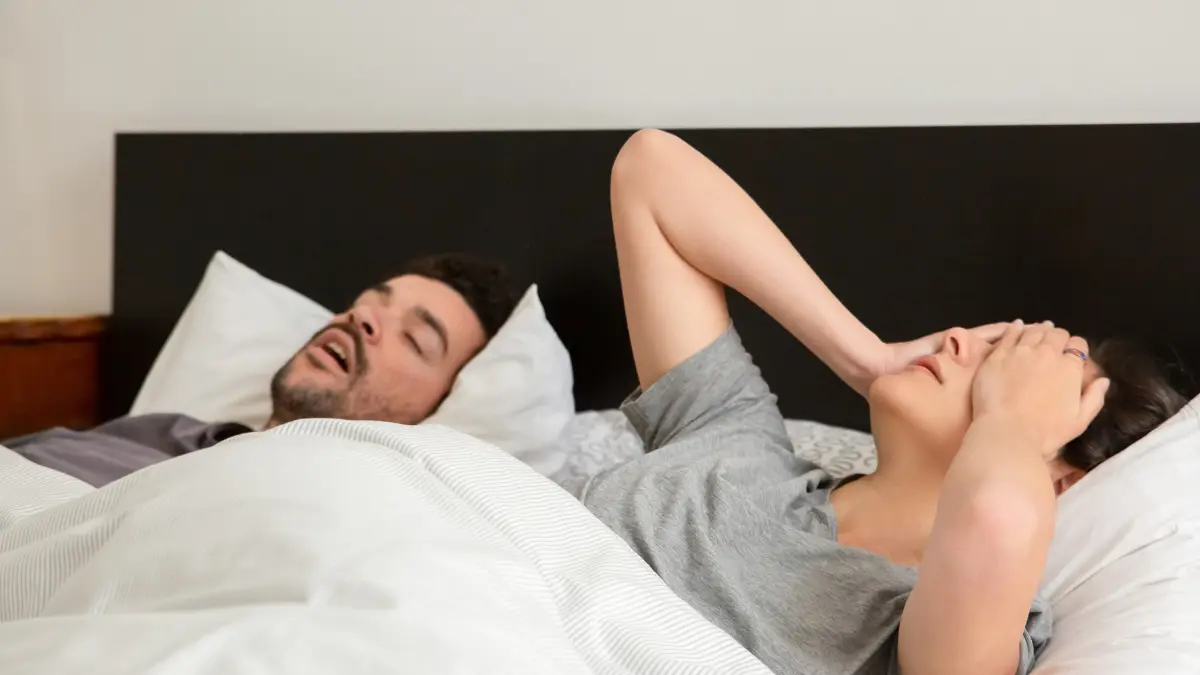Managing PCOS Night Sweats: Strategies for Restful Sleep
Polycystic Ovary Syndrome (PCOS) has various symptoms, including irregular menstrual cycles, excessive hair growth, acne, and weight gain.
Night sweats are a lesser-known but significant symptom experienced by some women with PCOS.
It refers to excessive sweating during sleep, leading to damp bedding and discomfort.
While sweating at night can occur due to various factors, PCOS-related night sweats are often linked to hormonal imbalances and the body’s response to them.
The exact mechanisms behind PCOS-related night sweats still need to be fully understood.
Understanding and managing night sweats in PCOS is essential for improving the quality of life and overall well-being of women affected by this common hormonal disorder.
Understanding PCOS night sweats
Night sweats is a situation where a person sweats too much while sleeping.
This can lead to wet sheets and a hard time sleeping.
Many different things can cause night sweats, but in the case of PCOS, they are mainly caused by hormonal changes and how they affect the body.
When you have PCOS, you often have high amounts of androgens like Testosterone, which can mess up how your body controls its temperature.
This can make you sweat a lot at night.
Managing PCOS night sweats
There are some ways through which you can manage your PCOS sweats.
Some of them are,
Hormonal balance
Managing PCOS signs like night sweats is all about balancing hormone levels.
A doctor may recommend birth control pills or drugs that block androgens to control hormone levels and stop night sweats.
Lifestyle modifications

A healthy lifestyle can help with some PCOS symptoms, like night sweats.
Regular exercise helps keep hormone levels in check and makes sleep better.
Managing stress with yoga, meditation, or deep breathing exercises can also help stop night sweats by making you feel less anxious and more relaxed.
Sleep environment
Night sweats can be less bothersome if the place where you sleep is comfortable.
Use cotton or bamboo bedding, which can breathe and move wetness away from the body to soak up sweat.
Use a fan or air conditioner to keep the bedroom cool and well-ventilated if you need to.
Wearing light and flexible sleepwear can also keep you from sweating too much at night.
Sleep hygiene
Good sleep hygiene habits can improve sleep quality and make night sweats less frequent and milder.
Keep a regular sleep routine by going to bed and getting up simultaneously daily.
Don’t do anything exciting or use devices right before bed, as they can keep you from falling asleep.
A relaxing routine before bed, like taking a warm bath or reading a book, can help the body know it’s time to get ready for sleep.
Dietary considerations

Night sweats are one of the signs of PCOS that can be helped by making healthy food choices.
Choose a diet with many fruits, veggies, whole grains, and lean proteins.
Cut back on processed foods, refined sugars, and saturated fats because they can worsen hormonal issues.
Some women with PCOS find that cutting back on or getting rid of caffeine and hot foods helps stop them from sweating at night.
Natural remedies
Some natural treatments may help people with PCOS who sweat at night.
Herbal teas, like chamomile or peppermint, can help you rest and keep your body temperature in check by being drunk before bed.
Sage products have been used for a long time to stop people from sweating too much, so it may be worth looking into.
Sage goods, like sage tea or essential oil, are often used as natural ways to stop sweating. Sage is astringent, which can shrink the sweat glands and make you sweat less. Before using sage products to stop sweating, consult a medical professional to ensure it’s right for your case.
Conclusion
Night sweats caused by PCOS can significantly affect a woman’s sleep and general health.
Women with PCOS can stop night sweats and get a good night’s sleep if they understand what causes them and use good ways to deal with them.
They can deal with night sweats and improve their quality of life by talking to doctors.
They can live a healthy lifestyle, make a good sleeping environment, practice good sleep hygiene, and consider natural treatments.
Remember that PCOS can affect people differently, so getting personalized medical advice and treatment choices that fit your needs is essential.
Frequently Asked Questions
How do you stop night sweats from PCOS?
To stop night sweats caused by PCOS, you should try to balance your hormones with medication recommended by a doctor, adopt a healthy lifestyle, keep your bedroom cool, practice good sleep hygiene, and talk to your doctor about natural remedies.
Can excessive sweating PCOS be cured?
PCOS can cause a lot of sweating, which can be managed and handled, but there is currently no cure for PCOS itself. Changes to your lifestyle, medicines, and other treatments can help ease symptoms and improve your general health.
Does PCOS have side effects on sleep?
Yes, PCOS can affect sleep in some ways. Hormonal imbalances, irregular menstrual cycles, night sweats, and other symptoms like anxiety or sleep-disordered breathing can mess up sleep habits and make it hard to fall asleep, wake up often, or sleep poorly overall.
How do you fix PCOS sleep problems?
Fixing sleep problems caused by PCOS requires a multi-pronged effort. It includes balancing hormones with medication, changing your lifestyle, like exercise and stress management, practicing good sleep hygiene, and getting advice from a professional about the best treatment choices for you.
WowRx uses only high-quality sources while writing our articles. Please read our content information policy to know more about how we keep our content reliable and trustworthy.






